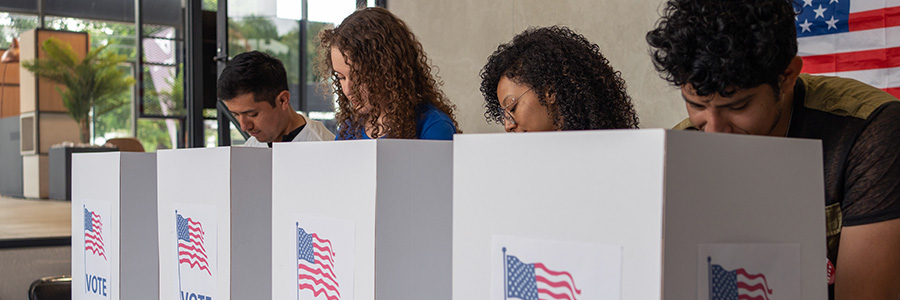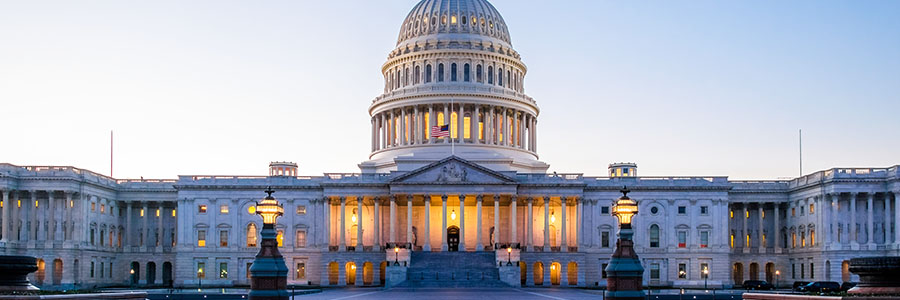Speaker 1:
Welcome to TD Cowen Insights, a space that brings leading thinkers together to share insights and ideas shaping the world around us. Join us as we converse with the top minds who are influencing our global sectors.
Chris Krueger:
Good morning. Welcome back to TD Cowen Street Cred. I am Chris Krueger with TD Cowen's Washington Research Group, and we'll attempt to translate K Street to Wall Street faster than a speeding Acela, and even faster if you juice up the playback. We are now six for six on Tuesday mornings with two weeks until election day when voting ends. We're 14 days until that election hopefully does end. I wanted to flag the early vote as well as what happens after November 5th. Okay.
As of Monday morning, approximately 14 million ballots have already been cast in the election. Point of reference, about a 100 million ballots were cast early in 2020. It's a little unclear with that metric this time around though, given the pandemic that was underway in the fall of 2020. But every battleground state is in some form of early voting. Early vote metrics, definitely more art than science, but at this point in the season, it's probably just as good as an indicator than polling. When you think about probably the biggest seismic change in the race, the biggest electoral change with Biden dropping out in our minds was that enthusiasm gap really flipping on its head. With Biden, particularly after the debate, it was something like two to one Republicans were more enthusiastic about their candidate for president than Democrats were.
So we've really seen that flip. So democratic enthusiasm is polling higher than Republican enthusiasm. So take that into consideration a bit on these early vote metrics. When we get early vote metrics, it does vary state by state, but generally you can see just the raw numbers, registered Republicans, registered Democrats, registered independents, and in some states that independent number is massive because that's just how the state rolls. Two massive variables that you really need to take with a couple pounds of salt with the early vote, though, specifically the independents, but then also that early are typically pretty high for Penn City voters, and Democrats tend to vote early.
So when you're looking at these state numbers, and if Democrats are up by 20 points in some state, keep that in your mind too, that Democrats are banking a lot of that vote early, and you'll see Republicans voting a lot on election day itself. That was very much the narrative of 2016. Hillary Clinton's early vote numbers looked fabulous until Donald Trump completely broke the models when you had a lot of low propensity voters voting for Trump, sometimes for the first time they'd ever voted. Okay. As I said, I'm going to tell you a couple three things.
So the third area, just to flag on early voting, the Nikki Haley primary voters, if you just put the polls to the side and just focus on actual votes, this is a sizable number. Hundreds of thousands of registered Republicans voting in the primaries. This was when it was still Biden as well. Haley had basically dropped out at the point. Michigan and Pennsylvania, I think this is why Harris is campaigning with Liz Cheney this week in some of those suburban Detroit areas, ancestral Republicans. But when you're looking at those Republican numbers on the early vote, there are probably some Harris voters in there. So again, more art than science, but with everybody having hot takes on polling, at least with the early vote, you can get a sense of the actual votes. We're only probably 15% of the way in, but something to focus on. We do think that polling is probably overindexed and early voting is probably underindexed at this point as trying to make some sense of, or at least try to find some signals in the noise. Okay.
Not to totally depress everybody, but wanted to flag what happens after November 5th and barring a landslide that evening, which seems quite unlikely, election night could easily turn into election winter. We already have 165 lawsuits filed across 37 states regarding the presidential. The Michigan Secretary of State has said that their count won't be done until the following evening, so Wednesday evening. Pennsylvania will probably take until the weekend, and California doesn't close until 11 P.M. Eastern. California not in play for the presidential, but the House race is really going to come down to those campaigns in California. So it's 2024, expect the unexpected.
December 11th is the national deadline to stop presidential counts, and then December 17th is when the electors meet in the state capitals. For those of you old enough to remember the 2000 Florida recount, that was the catalyst that brought the Supreme Court decision, so December 17th, circle that on the calendar. Hopefully, whoever wins on election night has a 10,000 plus margin. If we're in a Florida situation though, if we're under 2000, that's where recounts could really kick in. And this time we've got social media to amplify everything. So keep an eye on December 11th and December 17th.
Okay. That's a wrap. This has been Chris Krueger with TD Cowen's Washington Research Group for Street Cred.
Speaker 1:
Thanks for joining us. Stay tuned for the next episode of TD Cowen Insights.









